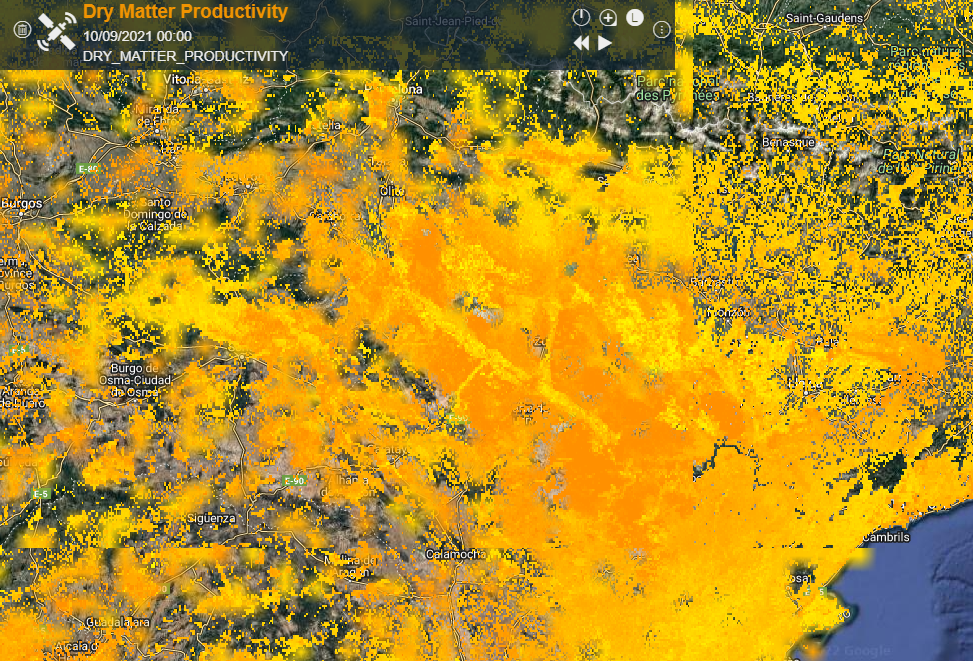Difference between revisions of "Copernicus DMP(eng)"
From MyDewetra World
(Created page with " [Home] - [Observations] <br/> {| class="wikitable" |- |style="background-color: orange;" |Layer name |style="background-color: orange;"| D...") |
|||
| Line 22: | Line 22: | ||
The main difference between DMP and GDMP lies in the inclusion of the autotrophic respiration. | The main difference between DMP and GDMP lies in the inclusion of the autotrophic respiration. | ||
| − | More info at: [https://land.copernicus.eu/global/products/dmp Copernicus DMP documentation on line] | + | More info at: [https://land.copernicus.eu/global/products/dmp Copernicus DMP documentation on line] [https://land.copernicus.vgt.vito.be/geonetwork/srv/eng/catalog.search#/metadata/urn:cgls:global:dmp_v2_1km catalog] |
|- | |- | ||
|Screenshot | |Screenshot | ||
Latest revision as of 12:37, 4 August 2022
| Layer name | Dry Matter Productivity DMP (Copernicus) | |
| Tag | Land Cover | |
| Folder | Eo Satellite | |
| Source | DMP (Copernicus) | |
| Description | Dry matter Productivity (DMP) represents the overall growth rate or dry biomass increase of the vegetation and is directly related to ecosystem Net Primary Productivity (NPP), however with units customized for agro-statistical purposes (kg/ha/day).
Similarly the Gross Dry Matter Productivity (GDMP) is equivalent to Gross Primary Productivity (GPP). The main difference between DMP and GDMP lies in the inclusion of the autotrophic respiration. More info at: Copernicus DMP documentation on line catalog | |
| Screenshot | ||
| Properties | ||
| Available variables | Dry matter productivity | |
| Available accumulations | ||
| Available interpolation algorithms | ||
| Available filters | ||
| Spatial aggregations |

